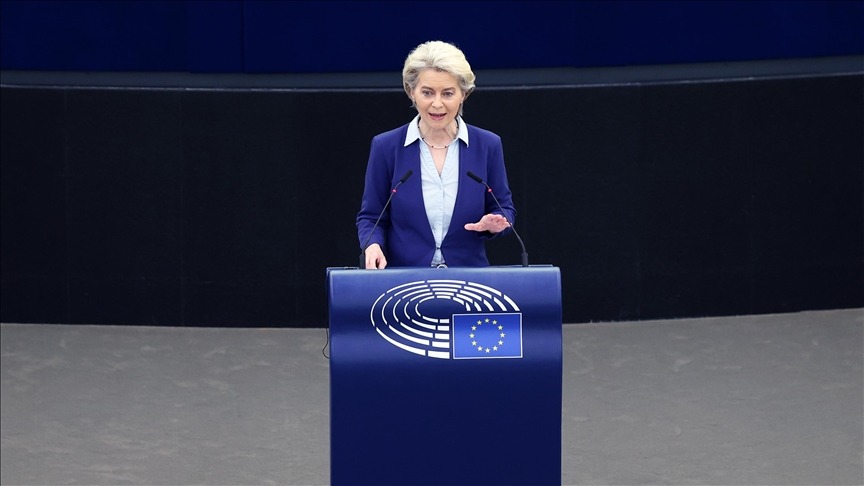Bloc expects Poland to abolish Disciplinary Chamber, reinstate unlawfully dismissed judges, says Ursula von der Leyen.
The EU Commission chief said on Tuesday that EU funds will not be disbursed for Poland until the country accomplishes reforms on restoring judicial independence.
Ursula von der Leyen spoke in the debate dedicated to the rule of law and the approval of the Polish recovery plan at the European Parliament’s plenary session in Strasbourg, France.
“I know that some of you are skeptical, but let me reassure you that no money will be disbursed until these reforms are undertaken,” von der Leyen told EU lawmakers who have already expressed concerns over the European Commission’s endorsement of the €35 billion ($37.45 billion) post-pandemic recovery fund for Poland.
While most of the EU countries have already received payments from the bloc’s €672.5-billion package adopted in 2020, the EU executive body withheld until last week the approval of Poland’s national plan over backslides in rule of law.
“A first payment will only be possible when a new law is in force and ticks all the boxes under this contract,” von der Leyen told EU lawmakers.
She explained that the EU expects Poland to abolish the current Disciplinary Chamber of the Supreme Court and replace it with an independent and impartial body in line with the previous rulings of the EU Court of Justice.
The EU will also demand to reform the disciplinary procedure and review the controversial cases against judges.
“Poland must demonstrate by the end of 2023 that all unlawfully dismissed judges have been reinstated. If this is not the case, there cannot be any further disbursement,” von der Leyen stressed.
She also said the EU executive body will continue with the infringement procedures defending the judicial independence in the country and that the current agreement on the recovery fund is “not the end of the road on the rule of law in Poland.”
EU institutions have been in a row with Poland over the country’s judicial reforms that curb judicial independence and undermine the primacy of EU law since 2016.
-AA

